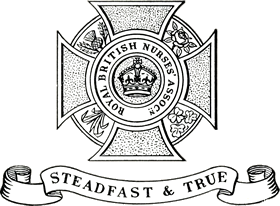About
The aim of this project is to provide a searchable transcript of the initial 1,000 entries in the British Nurses' Association register and, where possible, summary biographies highlighting the nurses' backgrounds, training and professional achievements.
The British Nurses' Association was founded in 1887, the first professional organisation for nurses in the world, by Dr Bedford Fenwick, and his wife, Ethel Gordon Fenwick, former Matron of St Bartholomew's Hospital, London, with HRH Princess Christian, daughter of Queen Victoria, as its first President. The Association was renamed the Royal British Nurses' Association (RBNA) in 1891 and received its Royal Charter in 1893. One of the main aims of its founder, Mrs Bedford Fenwick, was the registration of nurses and almost at once the RBNA opened its own membership roll and list of registered members. There was considerable opposition to the Association, particularly from Florence Nightingale, who felt that it would destroy the `vocational spirit' of nursing. The state registration of nurses was only achieved in 1919, when the Nurses' Registration Act finally became law.
Research was started in January 2011 by a team of volunteers from the University of the Third Age (U3A) led by Dianna Widdis and Maggie Wain of Harrow U3A. The project team utilised registration records, obituaries and minutes from the archives of the Royal British Nurses' Association held in King's College London Archives, together with information from external websites and databases compiled to form summary biographies of the first 1,000 registered nurses.
A second project began in January 2012 transcribing and researching more nurses. This project also built on the work previously completed by delving deeper into the individual histories of these nurses and by analysing and interpreting the existing data to provide a brief social history of the early days of the nursing profession. Topics such as social class, educational background, marital status, age of joining the profession, career progression and reasons for leaving nursing were considered.
Thanks to the work of volunteer transcribers through a Kingston University London project we were able to add transcriptions of entries in the register up to 1932, taking the total number of nurses in the database to over 6000.
Acknowledgements:
Research teams:
First project - Ben Bennett (Horsham U3A), Sheila Brazier (Leigh on Sea U3A), Pauline Brown (Barnet U3A), Cyril Dainow (North London U3A), Sheila Dobner (South East London U3A), Marie Gibney (South East London U3A), Joan Hardinges (Hackney U3A), Janet Kelsey (Redbridge U3A), Christine Mardon (Thorpe Bay U3A), Monica Marshall (Merton U3A), Jean Morgan (South East London U3A), Lesley Pepler (Hillingdon U3A), Maurice Segal (Harrow U3A), Margaret Thomas (Hammersmith and Fulham U3A), Josephine Walters (Orpington U3A), Maggie Wain (Harrow U3A), Dianna Widdis (Harrow U3A)
Second project - Pamela Beevers (South East London U3A), Feride Cork (Merton U3A), Jeanne Cozens (South East London U3A), Eva Garland (Kingston U3A), Frances Greenall (South East London U3A), Brigitte Guilaumet (Merton U3A), Jackie Jacobs (Harrow U3A), Ella Marks (Ealing U3A), Barbara Speller (Hammersmith & Fulham U3A), Susan Woolf (Harrow U3A)
Additional thank you to Jean Morgan, Margaret Thomas and Joan Hardinges who enjoyed the first project so much that they came back for more!
Special thanks to:
Wendy Mott (Hounslow U3A) for sharing her expertise with the group and her continuing support and also to Janet Gould for her tips on family history research.
We would also like to thank the volunteers who worked with Kingston University London and, in particular, Dr Sue Hawkins for organising it.
Archives & production team:
Geoff Browell, Diana Manipud, Stephen Miller, Frances Pattman and Lianne Smith.

